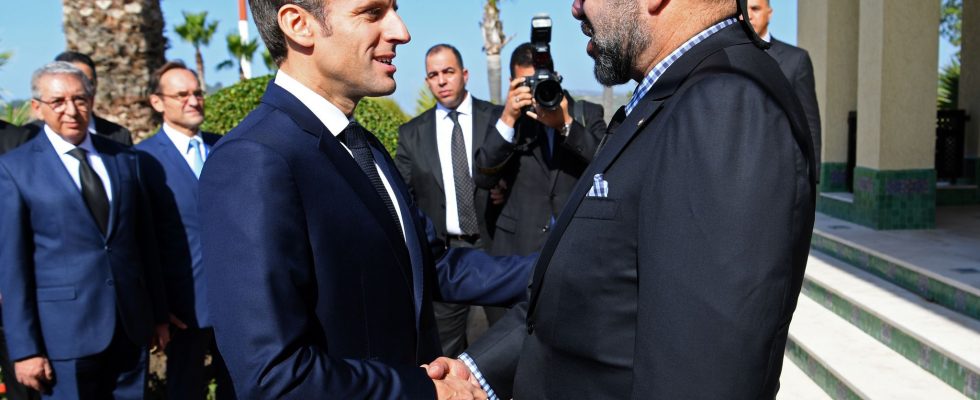A kingdom and a republic. A discreet monarch, sometimes (too) often absent from his country. An omnipresent president, intervening on all fronts. Two ways of leading, but also two temporalities that have nothing in common. Mohammed VI, the king of Morocco, is the heir of sultans who have ruled since the 8th century. Emmanuel Macron is the president of a Republic, which, in its current form, the Fifth, is less than a century old. One, taking his power from God, has ruled for 24 years and enjoys almost religious adulation, and the other, taking his power from the ballot box, has ruled for six years in an increasingly hostile climate. It is an understatement to say that the two men do not have the same perception of time. Mohammed VI’s only real concern is to know what kingdom he wants to leave to his son, Moulay El Hassan, who will soon be old enough to govern. Emmanuel Macron’s goal is to make all those who already seem too eager to succeed him wait.
Last March, the French president spoke of his “friendly” personal relations with the Moroccan king. Without receiving any accolades from the Palace following this declaration. It is clear that this sovereign who spends so much of his time in France – where he owns, among other things, a castle –, who sometimes wanders the streets of Paris incognito, who counts the rapper Gims among his close friends, never finds the opportunity to take a detour to the Elysée Palace – or are you not invited enough to do so? To become “friendly”, the relationship would probably have to already exist and at least be cordial.
But to what extent should relations between Morocco and France depend on the links between these two leaders? An eternal kingdom and a secular republic can – and must – in a degraded security context, find ways of understanding. The king would still have to open the door a little. To have a dialogue, it takes two people to care.
